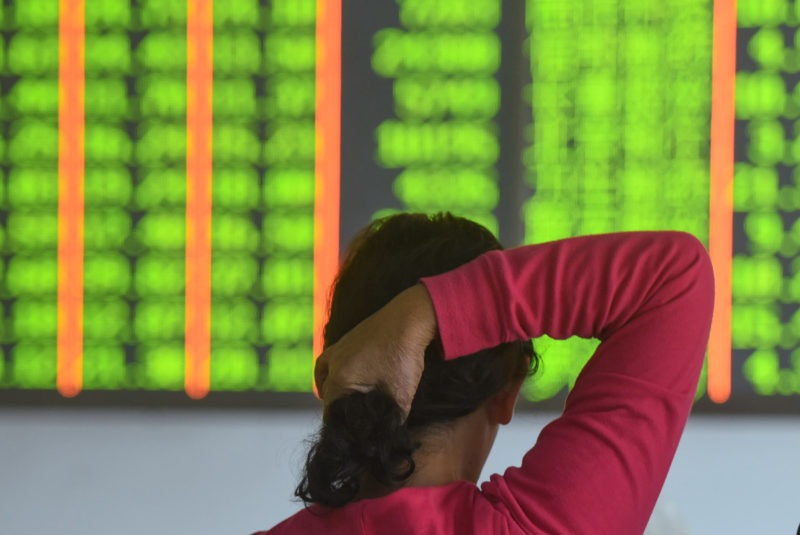China’s answer to Nasdaq set to begin trading
Trading is due to begin on a new Nasdaq-style technology board in Shanghai (STR)
Shanghai (AFP) – Trading begins Monday on a new Nasdaq-style technology board in Shanghai that represents one of China’s most significant market reforms, and a potential weapon in its growing tech rivalry with the United States.
Twenty-five stocks will debut on the Shanghai Stocks Exchange’s Sci-Tech Innovation Board — dubbed the STAR Market — in which listing and trading rules have been eased to help channel funding to start-ups.
China’s government envisions the board being mentioned in the same breath someday as the tech-heavy US Nasdaq, encouraging firms to list at home after the likes of Alibaba and Baidu chose Wall Street.
But the initial impact is expected to be slight.
“I think the science and technology board will develop into a major and important sector in China’s capital markets, but it will take a long time, maybe 10 years, 20 years, or even longer,” said Jiang Liangqing, a money manager at Ruisen Capital Management.
China hopes to draw listings from among the country’s rich stable of tech “unicorns” — start-ups valued at a minimum $1 billion — such as Alibaba-linked mobile-payments pioneer Ant Financial, ride-sharing giant Didi Chuxing, and online-services platform Meituan-Dianping.
None of those are among the initial listees, however, which include no household names.
The biggest is China Railway Signal & Communication Corporation, which has reportedly raised 10.5 billion yuan ($1.53 billion), the most of any board constituent.
– Leap of faith –
It’s a leap of faith for China’s volatility-averse authorities, as stocks have relatively free rein.
For the first time, Chinese companies can list without a track record of past profits or restrictions on IPO pricing.
There will be no limits on price movements for the first five days of trading, after which a daily 20 percent band is imposed.
China’s main exchanges are subject to a 10 percent band to contain volatility on the often rumour-driven markets.
The tech board was announced in November by President Xi Jinping as a battle with the United States for technological supremacy heated up.
Xi has called on China’s tech leaders to become global champions, while the US has fought back in part by taking steps to clip the wings of Chinese telecom giant Huawei.
When big tech companies list overseas, the government in Beijing loses influence over their fund-raising, and capital controls prevent Chinese investors from sharing in those companies’ success due to restrictions on purchasing overseas shares.
China realised it needed to give ground on market reform.
“If China didn’t launch this new tech board now, it would miss the chance to transform its economic development into this ‘new economy’ mode,” said Yang Delong, chief economist at First Seafront Fund.
Much of the lead-up to the trading launch, however, has involved officials tamping down concern that it would weigh on China’s main markets — already pressured by slowing economic growth and the US-China trade war — by siphoning off liquidity.
Analysts said regulators will go slow on growing the tech board to avoid that.
“The (main) markets are in a downturn now and if giant companies list on the tech board initially, market capital will be diverted. The market cannot bear that,” said Yang.
“The new board won’t drain too much from the main boards.”
Disclaimer: Validity of the above story is for 7 Days from original date of publishing. Source: AFP.


